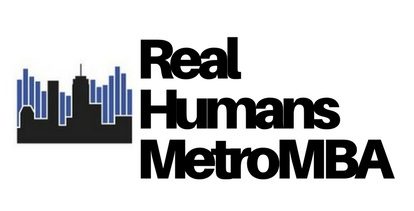Northwestern MBA Class of 2021 Introduced at Kellogg

The Northwestern MBA Class of 2021 at the Kellogg School of Management reflects the intelligence and diversity that the school is known for.
Continue reading…GMAT Scores, GPA, Rise Again for NYU Stern Class of 2021

NYU Stern got a jump start on introducing its full-time MBA Class of 2021.
Of the 3,518 applicants hoping to join the NYU Stern Class of 2021, only 919 were admitted and 359 enrolled, for a 26 percent admission rate. Those students are, on average, 28 years old and have 5.2 years of professional experience. A few of them were also fresh graduates, with 3 percent having no work experience.
Dramatic Jumps in Academic Performance

One of the major highlights from the NYU MBA Class of 2021 is the improved academic performance of the candidates.
- The average GMAT score rose 5 points, from 716 to 721
- Average GPAs increased from 3.45 to 3.52
There was also quite a difference regarding undergraduate majors. While a quarter of the Class of 2020 majored in business, that percentage increased to 30 for the new group. Meanwhile, the choice of engineering, math, or science as a major matched last year’s candidates at 22 percent. The third most popular major for the Class of 2021 was social sciences (19 percent) followed by economics (15 percent). This is a reverse of last year when a fifth of the class were economics majors.
Women on the Rise, Veterans Hold Steady
The NYU MBA Class of 2021 is expected to arrive on campus with more women than last year—female enrollment rose from 35 percent to 36 percent. However, international diversity decreased slightly. Only 33 percent of the Class of 2021 maintains international citizenship in 37 different countries, compared to 39 percent last year.
There was also a slight decrease in the number of minorities represented in the student body. In the Class of 2021, around a quarter of students (24 percent) identify as minorities, 9 percent of whom are underrepresented minorities. That’s down from 29 percent and 13 percent from last year. However, 7 percent of students are still U.S. Military veterans or on active duty, which is owed in part to the Fertitta Veterans Program.
Work Experience and Industry Background
Students entering the NYU MBA Class of 2021 come from a wide range of industries and backgrounds, the most popular being financial services (28 percent). After that, prior industries are widely mixed with no other industry breaching 12 percent of the class. They include:
- Consulting, 11 percent
- Technology, 9 percent
- Consumer, Products, Retail, 7 percent
- Nonprofit, Arts, Education, 7 percent
To see the full profile as of July 31, 2019, visit the Stern full-time MBA admissions website.
This article has been edited and republished with permissions from its original source, Clear Admit.
Real Humans of the Miami Business School

The idea of a business school, for many, conjures images of rigidity: stuffed shirts, properly tuned haircuts, and brutalist, monochrome buildings—foundational visions of the business school stereotype. But these observations can be fairly limited, if not completely outdated. While some schools are still defined by business traditionalism, the University of Miami Business School offers a decidedly less obtuse vision.

The Miami Business School, overlooking Lake Osceola in Southern Miami, defies business school assumptions. Alongside the city’s effortlessly pleasant weather, potential students won’t find the the limited, formal degree options, with more choices than the vast majority of business schools virtually anywhere, including: three full-time MBA programs; three different Executive MBA programs; a part-time MBA option; Online MBA option; and five different dual MBA opportunities. In addition, the school offers eight on-campus specialized master’s options and two more online specialized masters degrees.
Simply stated, when it comes to a wealth of choices, you won’t find many schools that offer more.
Expansive opportunities also means an immensely diverse class of students. Statistically, Miami is considered the most “international” city in the United States, according to U.S. Census Bureau data, inviting a truly global array of career opportunities that few business schools can try to match.
When talking with several Miami Business School MBA students, the diversity of choices and Miami’s undeniably friendly international appeal is certainly reflective, including a French-born fitness expert, a clothing line founder, and a Venezuelan marketing guru, among others. Read on to see their stories and what the future may hold for life after an MBA.
Michigan Ross and Michigan State Broad: Which MBA is Right for You?

As you search for the best fit in an MBA program, the country’s big metropolitan areas are likely on your list. It’s clear that New York, Chicago, Los Angeles, San Francisco, Boston and Philly have no shortage of renowned business schools and robust job markets.
The College Admissions Scandal—Could it Happen with MBA Programs?

Earlier this month, dozens of people—including celebrities Lori Laughlin, William H. Macy, Felicity Huffman, and Mossimo Giannulli—were caught greasing the wheels in a major college admissions scandal. Parents funneled a combined total of $25 million through a college admissions consultant, William “Rick” Singer, to athletic coaches and test proctors, all with the aim of gaining admission for their children to an elite undergrad program. Undergraduate programs entangled in the scandal included Stanford University, the University of Southern California, Wake Forest University, Georgetown University, Yale University and others.
Singer organized the bribery through his admissions consulting operation and a phony non-profit called Key Worldwide Foundation. In exchange for payment, the exam proctors would give students more time for the SATs and ACTs, provide answers and even allow substitute test takers. Meanwhile, athletic coaches would push candidates as recruits at their institution, whether or not they even had athletic experience.

Full House actress Lori Laughlin (left) was one of the major names caught in “Operation Varsity Blues,” paying an alleged $500,000 bribery to get her daughters Olivia Jade (center) and Isabella Rose (right) gain admission to USC / Photo via Gabriel Olsen/Getty Images
“Operation Varsity Blues,” as the FBI has nicknamed the investigation, exposed weaknesses in the college admissions process and demonstrated the shocking lengths that some parents will go to in securing a brand name education for their children.
We’ve seen the pressure and the hope of gaining admission to a top business school—so what’s to prevent fellow MBA applicants from gaming the system? Clear Admit believes there are several key differences in the MBA application space that make the “Operation Varsity Blues” type of scandal less likely.
- GMAC Runs a Tight Ship
The Graduate Management Admissions Council (GMAC) owns the GMAT exam, a test required by a majority of leading business schools for admission. The test is only offered via computer, making it harder to bribe a proctor for extra exam time. It also features strict identity security—including palm scanning—that thwarts any attempt of substitution of the test taker. Fraudulent attempts to increase GMAT scores have happened in the past, but GMAC has been swift in taking appropriate measures to avoid future threats to the integrity of the test. For instance, GMAC explicitly chose Pearson as the designated administer of the exam in 2006 due to the firm’s track record in testing security and anti-fraud measures. - Without Sports, There are No Coaches to Bribe
There are no formal athletic programs in graduate business programs. Unlike for the undergraduate scandal, the space for which one would pay simply does not exist. - Integrity Matters, and AIGAC Helps
The Association of International Graduate Admissions Consultants (AIGAC) released a statement upon news of the undergraduate admissions scandal: “AIGAC was established with the express purpose of setting high ethical standards in the graduate admissions consulting industry…AIGAC exists to provide support and professional development for those helping young people self-reflect through the admissions process and attain the right education in the right way.” Scott Shrum, former President and COO of Veritas Prep and current Secretary of AIGAC, added, “One of the most important things AIGAC does is keep the lines of communication open between the admissions consulting industry and administrators at schools. The more the admissions process seems murky to applicants, the more room that shady operators have to operate in the twilight and promise things that they really shouldn’t be promising. The more transparent the process is, the less room there is for that sort of behavior, and AIGAC has helped schools find allies in the industry who also want more transparency. A good admissions coach helps an applicant see the process more clearly and approach it with more confidence, and I credit AIGAC and the schools for helping to make that situation better over the past decade.” - Admissions Consultants Offer Advice On How to Put Your Best Foot Forward, Not Tips to Cheat the System
Shrum also notes, “The journalists who conflate legitimate coaching with this scandal are either deliberately doing it or are missing the point. That’s like saying that hiring a tennis coach and giving your kid steroids are both ways to help your child do better in a tournament, so they must not be very different. While this scandal has rightly shed more light on the college admissions game, Rick Singer and his cronies weren’t admissions counselors. They were crooks.” - Applicants are in the Driver’s Seat
Clear Admit co-founder, Graham Richmond, shared the following observation, “Helicopter parents are much more likely to be present in undergraduate admissions. By the time young people turn their attention to the MBA, they are usually the ones driving the process (and NOT their parents) and therefore, there is far less likelihood of fraud.” - Sooner or Later, the Truth Will Come Out
Shrum also offered this perspective, “I think it would be naive to think [such a scandal] can’t happen in MBA admissions. In the test prep space, the Scoretop scandal from 2008 showed the lengths that people will go to in an effort to boost their GMAT scores. On the admissions side, it’s inevitable that an applicant from a well-connected family, or whose boss is a huge donor to a school, has a leg up in the process. As long as universities value fundraising, I think this will always be the case. With all that said, however, it’s important to keep in mind that business school classes tend to be much smaller than undergraduate colleges, so it’s much tougher to ‘hide’ a mediocre applicant in a class. But it surely happens.”
While the system itself clearly has several safeguards against fraud, Shrum left us with a dose of reality:
“Unethical clients and unscrupulous admissions consultants find each other. It’s rare that an innocent family gets steered into bribery by an unethical consultant, or vice versa. They know what they’re up to, and what/whom to look for. I can’t count the number of times an applicant or parent has asked me, ‘So you’ll write the essays for us, right?’ and when I explain that’s not how it works, they move on. In some cases, I’m sure they find an admissions consultant who will do just that for them. Both parties know that what they’re doing is wrong, but they seem to have no problem doing it.”
The view at Clear Admit is that what happened in the “Operation Varsity Blues” case is clearly repugnant and unethical. It is also sad and a little puzzling.
Richmond offered the following thoughts: “On some level, this shouldn’t be shocking; it’s certainly not the first time we’ve seen people have ethical lapses when they can line their own pockets with money. But what sticks with me is the role that the parents played. These parents—who are presumably well educated and could have theoretically provided a great environment for their children to become smart young people and get into great schools on their own merit—felt the need to cheat. I wonder if they were perhaps too busy with their careers and not bothering to parent (resulting in kids who weren’t motivated enough) … or if they were somehow led to believe that this is how the college admissions game is played. Or perhaps it was just a case of them desperately wanting to be able to brag about the success of their children at cocktail parties? In all cases, it’s just profoundly sad.”
This article on the recent college admissions scandal has been edited and republished with permissions from its original source, Clear Admit.
UVA, Oxford, CEIBS Rise in All-New Financial Times 2019 Ranking

The latest Financial Times MBA ranking is officially out, with several international schools rising closer and closer to the top in 2019.
